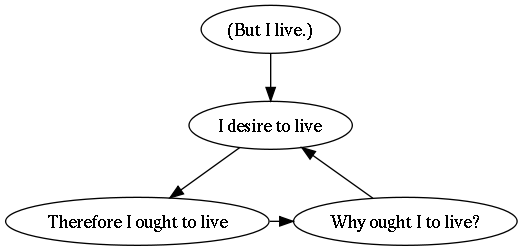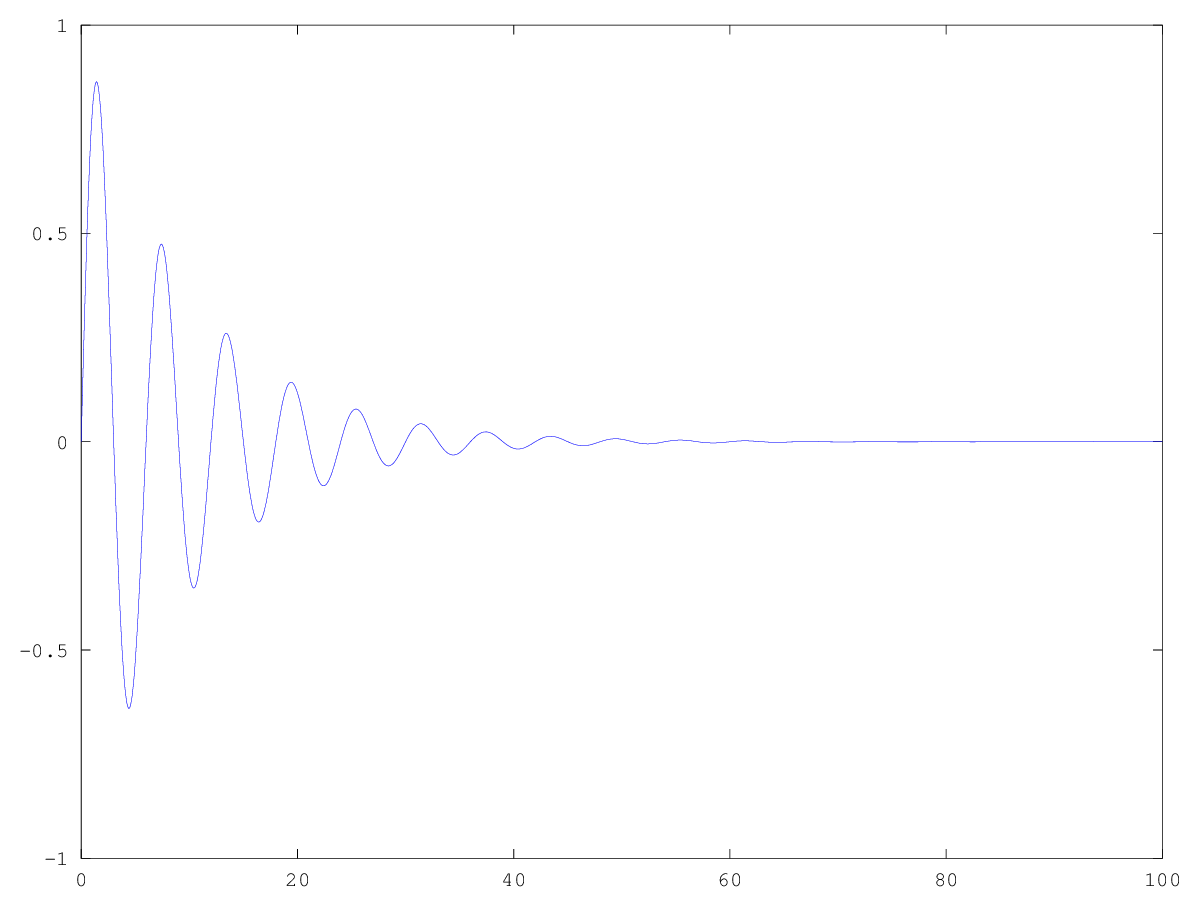Two Simple Solutions to the Abortion Problem
I've mentioned these two here and there on my blog and other places, but I realized it's useful to have a centralized post for them. Especially if I ever do more in-depth research and want to share my notes.The first simple solution is kind of totalitarian and I don't think it's likely to be done by America. Maybe one day in Asia. Basically as part of a larger eugenics program to create more perfect humans, the State forces every male to undergo a RISUG treatment with follow-up treatments every 5-10 years. People are thus free to fornicate as they desire, and if they want to reproduce they must demonstrate fitness for such to the State and the State will arrange to reverse the RISUG. Since the State will only select breeding partners that are serious about it, there will be no abortions -- and as a bonus, no unwanted children.
The second simple solution, which I think may be more feasible in America, is to alter the abortion procedure into cryogenically preserving the embryo until such a time as a mother wishes to carry the embryo to term. This could be the original mother or not, and the birth-mother may not end up as the parenting mother. (There is a market for infertile women to pay fertile women to carry the preserved embryo to term and then the infertile woman adopts the child.) If you the original mother decide you don't want the child but are too far along in the pregnancy where cryogenically preserving the baby gives less than say for argument 50% chances at survival post-revival/thaw, then too bad, you have to carry it to term (and probably put it up for adoption) or be tried for infanticide. Research will be done into extending the period where a mother can have second-thoughts all the way up to birth (with the research also being useful for adult cryopreservation).
See Full Post and Comments
What I'm Not Writing About
For the past several months (or has it been over a year?) I've been trying to orient myself in which cultures I value, which political theories I most endorse, and teaching myself truths that were once known generally but are now known to just a few.And what I've found is at such odds with the public opinion that I don't want to write about it publicly. At least, not at length. And a lot of it I'm still shaky on. So much relies on a careful examination of history, which I have to do completely on my own, as no secondary educational institution (and probably very few if any post-secondary institutions) adequately prepares one for the task. The knowledge of history I gained growing up is completely suspect, and for the past year I've slowly been fixing that. One day when I have ample historical knowledge to have strong evidential arguments, not just strong arguments from logic, I may write about the things I'm currently thinking about.
It's interesting to find something that's very at odds with public opinion. I've also realized that "internet culture" (mainly that which exists on reddit, youtube, 4chan, tumblr, facebook, and twitter), while not equivalent to the larger offline culture, is nevertheless big enough that it counts as public opinion. Even though the internet culture is sometimes at odds with the offline culture, there are certain things the two agree on that if you disagree with can result in a bad time for you. And if the two disagree, you can still lead a happy existence. Anarchy's not so cool offline, but online anarchists are all over the place. Same with atheists. Same with furries. Criticizing the military is A-OK. What's not cool online or offline? The stuff I'm thinking about.
See Full Post and Comments
Brief thoughts after reading Military Nanotechnology
I just got through reading Military Nanotechnology: Potential Applications and Preventive Arms Control by Jürgen Altmann (http://www.amazon.com/Military-Nanotechnology-Applications-Preventive-Contemporary/dp/0415407990)This book covers a lot of ground. It discusses what sorts of research projects are being done worldwide (mostly in the US, mostly military funded (though a lot medically motivated and funded)) on nanotechnology, how much money is being spent on them, and lists specific technologies that are on the horizon for 5-20 years or longer. It also discusses the challenges/benefits of molecular nanotechnology. It's amazing how close to reality sci-fi can be...
Perhaps the most interesting section of the book breaks down and evaluates military applications under the criteria of preventive arms control. Broadly, there are three categories:
See Full Post and Comments
Just a little longer...
I've got two more semesters of school left, but only a total of 22 credits. Next Spring I'll only be taking two courses, if all goes well this coming semester which I start on the 3rd.What am I taking this semester? I need to satisfy an Art requirement, so I'm taking a class on user interface and experience design on the recommendation of a housemate. I'm not entirely sure what I should expect, but I think it will be easy enough to pass given I've had jobs designing application screens. Maybe my UI ideas aren't the best but I can do the work. I need to satisfy a 4-credits-of-anything requirement, so I'm taking a database course which is beneath me (it was beneath my housemate and I know more about databases than he does) for three credits, then a 1-credit "job preparation" course which only lasts the first few weeks and shouldn't be a problem as I've already got a good resume, LinkedIn account, business card (even if outdated), and previous job experience...
I'm taking a project course which will continue my radar project from last semester. I'm also taking an intro Electricity and Magnetism physics course, which I'm not looking forward to. Giancoli is shit. The professor isn't known as a good teacher (fine person of course). I want to learn electrostatics as a special case of electrodynamics and in the language of geometric algebra, not learn electrostatics as a series of disjointed statements and unreal examples followed by "and hey, here's Maxwell's equations!" during the last few weeks. Feynman's book takes the right approach by starting with Maxwell's equations and simplifying for electrostatics, I just wish he used geometric algebra instead of vector components...
See Full Post and Comments
Simple logic...
I came across these two images while cleaning up my home folder:

They're from some time in 2010, when I was in an argument with a former roommate who is an Objectivist. He was having trouble seeing the issue with the is-ought problem in philosophy, believing it to be solved. The desire to live must have come up, which is part of the base of his philosophy, and he tried to assert it is an objective fact that living creatures desire to live. I gave two counter-examples, thus deductively disproving that assertion. Surely if a desire to live is an is, it cannot so simply be overridden, therefore when it is overridden, that implication's premise must be false. The second image shows that the is-ought problem easily leads to circular reasoning, which is part of why it's a problem to begin with. Circular reasoning is bad in deductive logic!
See Full Post and Comments
Depression from inadequate tooling
This isn't a new phenomenon among programmers, not at all. But it's been striking at me annoyingly heavily over the past few months. When I work on some programming project, if my mind strays to how annoying some of the tools I'm working with are then such thoughts can paralyze me into not working! I'll acquire a moping attitude that with the right tools a task that takes an hour could be done in ten minutes. I'll curse the language for its verbosity, or lack of features from other languages and platforms. This applies to my favorite languages too. I sometimes get sad when I can no longer "feel the hardware" beneath a language -- part of me doesn't want to know, but part of me does, for knowing your hardware is the surest path to optimization. The programs I use daily are annoying slow, and it makes me think whenever I'm writing a program "Does this have to be annoying slow? Is there anything I can do to speed it up?" Sometimes there isn't -- even something that should be as simple and fast as rendering a new tab in Flex is, by nature of Flash, annoying slow. Just what the hell is going on down there? I also get this feeling when I use my Nexus 10 tablet and it does strange and slow things from time to time. How hard can rotating the screen smoothly be? (I've seen apps that clearly do it themselves instead of letting the OS do it and they do it so much better...)I'm finding it difficult to come up with and use a coping strategy for this. I feel like the best I can do is just to accept my lot at living in such an uncouth age. Sometimes I'll be inspired to make something better, but then I'll get in that same paralysis once I realize that in order to make something better I first have to do it with things that are horrible.
My primary desktop computer has two OSes on it: Gentoo Linux, my primary, and Windows 7, which I use when I want to play certain games, mine litecoins (bitcoins I do on Gentoo), build an EXE for some python program, or something else that requires me to use Windows. Thinking about trying to do productive work on Windows makes me metaphorically sick; I don't understand how millions of people do it. But I do understand somewhat why I find it so distasteful, and I can imagine that people who don't find it so distasteful aren't as phased by it.
See Full Post and Comments
Guided functions
Below is a simplified, conceptual graph of a damped harmonic oscillator (e.g. attach a spring to a wall, attach a ball to the end of the spring, mark that position as 0, tug on the spring, and let it go, measuring the distance (y-axis) from the initial position over time (x-axis)). Maybe a better example would be a pendulum? It's ultimately the same math. In any case, notice that as time increases, the frequency of the oscillations stays the same, but the distance the thing oscillates continues to die down until eventually it is no longer moving. But it does not die down randomly! No, there are invisible guides that predictably decrease the height of the oscillations according to a simple exponential decay formula. Thus one might think of this graph as a guided sine wave: the exponential function guides it to 0, even though the exponential function is not as visible as the blue sinusoidal function. Understand?
Consider the adage: "the rich are getting richer and the poor are getting poorer." Many people believe this! Many people with refrigerators, television, a long life-expectancy where they can actually retire instead of working until death, educated children... in short, many luxuries their very recent impoverished ancestors lived most or all of their lives without! If the poor truly were getting poorer, we should expect to see a systematic decline from wherever one draws the line of "poor". I invite any reader to find such a decline.
See Full Post and Comments
Recent Posts
2026-01-06
2025-12-31
2025-11-10
2025-10-15
2025-08-18